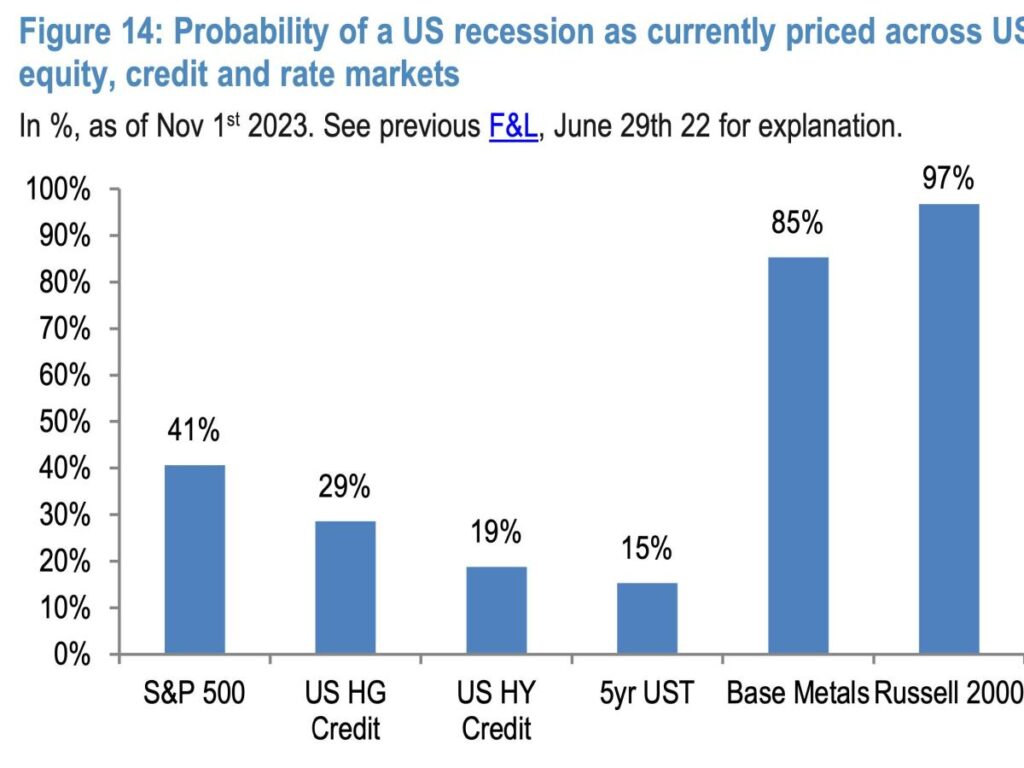-
The odds of a recession vary widely when looking across different asset markets.
-
The Russell 2000 is pricing a 97% probability, while 5-year Treasurys put it at 15%, JPMorgan said.
-
These discrepancies reflect wider uncertainty in the economy amid conflicting data trends.
Our Chart of the Day comes from JPMorgan, which highlighted on Thursday how widely inconsistent recession odds are when looking across equity, credit, and commodity markets.
On one extreme, the small-cap Russell 2000 index is pricing in a 97% probability of a coming downturn. JPMorgan calculated the risk by comparing the current peak-to-trough decline with those seen during previous recessions.
For the Russell 2000, that’s a 32% drop from its November 2021 peak, compared to a 33% average. The index’s retrenchment is the likely result of falling sentiment among retail investors, who tend to dominate small-cap equities.
Meanwhile, a much more modest decline in the S&P 500 is pointing to a 41% probability of a recession, though JPMorgan suggested the large-cap index is exposed to a different set of risks.
“Given the higher cyclicality and interest rate sensitivity of small caps due to their greater reliance on floating rate debt, that makes them a more suitable place to gauge cyclical risks,” the note said, adding that the chart “suggests that the current pricing of US small caps embeds significantly more cyclical risk relative to that implied by large caps (S&P 500) or other asset classes.”
Elsewhere in financial markets, 5-year US Treasury bonds are pricing in much lower odds of a recession at 15%. But high-yield US debt is flashing 19% odds, while investment-grade US debt puts it at 29%.
Meanwhile, in the commodities market, base metals are pricing in an 85% probability.
These wild discrepancies reflect wider uncertainty about the direction of the US economy, with commentators predicting soft-landing and recession scenarios.
In a recent interview on CNBC, investor Steve Eisman noted conflicting economic trends have left Federal Reserve Chairman Jerome Powell baffled as the central bank held rates steady on Wednesday.
“I listened to Powell’s press conference and I think he’s just as confused by all the different data points as everybody else,” said Eisman. “Maybe that’s why he wants to pause, because he doesn’t know what to do.”
Read the original article on Business Insider
Read the full article here

